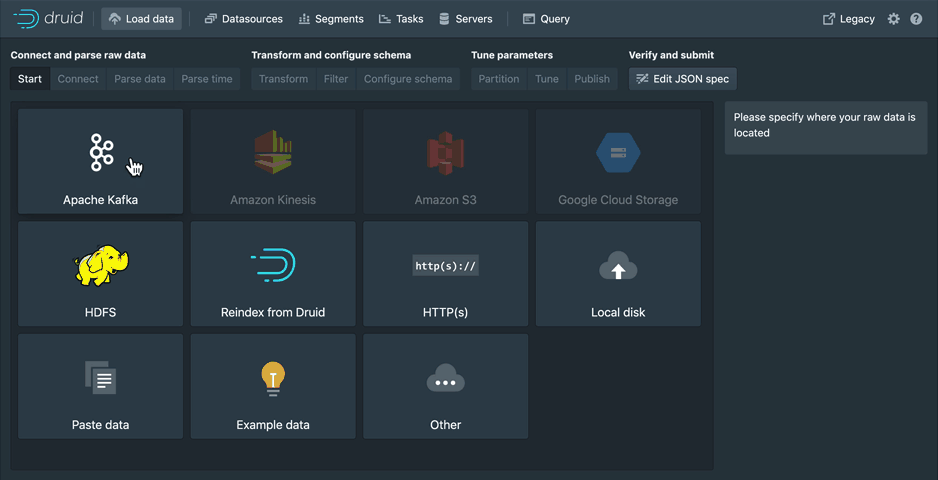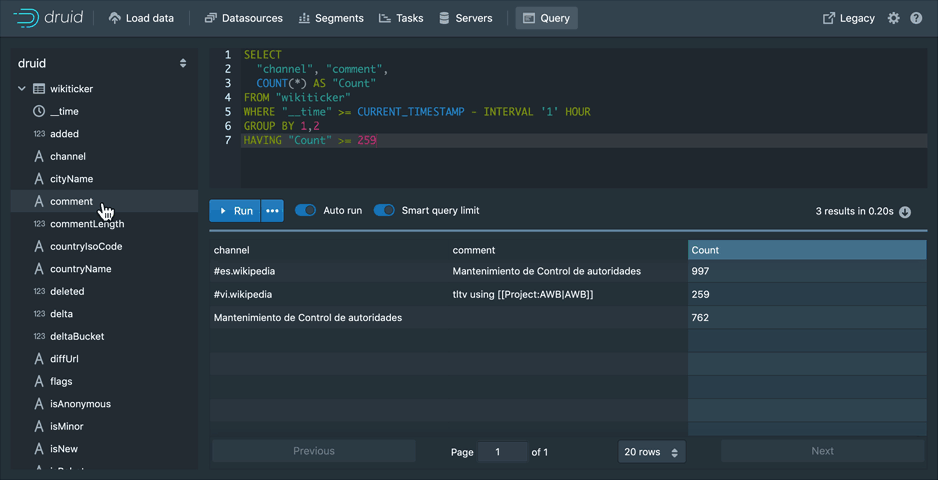This fixes intermittent, spurious failures that we've observed in the Kinesis sharding integration tests due to Kinesis taking longer than the code expected to start a sharding operation. The method that's changed is part of the integration test suite and only used by the test cases that we've seen are flaky. Prior to this change, the tests expected a sharding operation to start in 9 seconds (30 retries * 300ms delay/retry). This change bumps the number of retries to 100, giving Kinesis 30 seconds to start the sharding. This PR also makes a small, clarifying change to the condition used to determine if sharding has started. Instead of checking if the number of shards has increased (which was technically correct even if the test is reducing the number of shards due to a Kinesis implementation detail), we now just check if the shard count has changed.
Website | Documentation | Developer Mailing List | User Mailing List | Slack | Twitter | Download
Apache Druid
Druid is a high performance real-time analytics database. Druid's main value add is to reduce time to insight and action.
Druid is designed for workflows where fast queries and ingest really matter. Druid excels at powering UIs, running operational (ad-hoc) queries, or handling high concurrency. Consider Druid as an open source alternative to data warehouses for a variety of use cases. The design documentation explains the key concepts.
Getting started
You can get started with Druid with our local or Docker quickstart.
Druid provides a rich set of APIs (via HTTP and JDBC) for loading, managing, and querying your data. You can also interact with Druid via the built-in console (shown below).
Load data
Load streaming and batch data using a point-and-click wizard to guide you through ingestion setup. Monitor one off tasks and ingestion supervisors.
Manage the cluster
Manage your cluster with ease. Get a view of your datasources, segments, ingestion tasks, and services from one convenient location. All powered by SQL systems tables, allowing you to see the underlying query for each view.
Issue queries
Use the built-in query workbench to prototype DruidSQL and native queries or connect one of the many tools that help you make the most out of Druid.
Documentation
You can find the documentation for the latest Druid release on the project website.
If you would like to contribute documentation, please do so under
/docs in this repository and submit a pull request.
Community
Community support is available on the druid-user mailing list, which is hosted at Google Groups.
Development discussions occur on dev@druid.apache.org, which you can subscribe to by emailing dev-subscribe@druid.apache.org.
Chat with Druid committers and users in real-time on the Apache Druid Slack channel. Please use this invitation link to join and invite others.
Building from source
Please note that JDK 8 is required to build Druid.
For instructions on building Druid from source, see docs/development/build.md
Contributing
Please follow the community guidelines for contributing.
For instructions on setting up IntelliJ dev/intellij-setup.md







